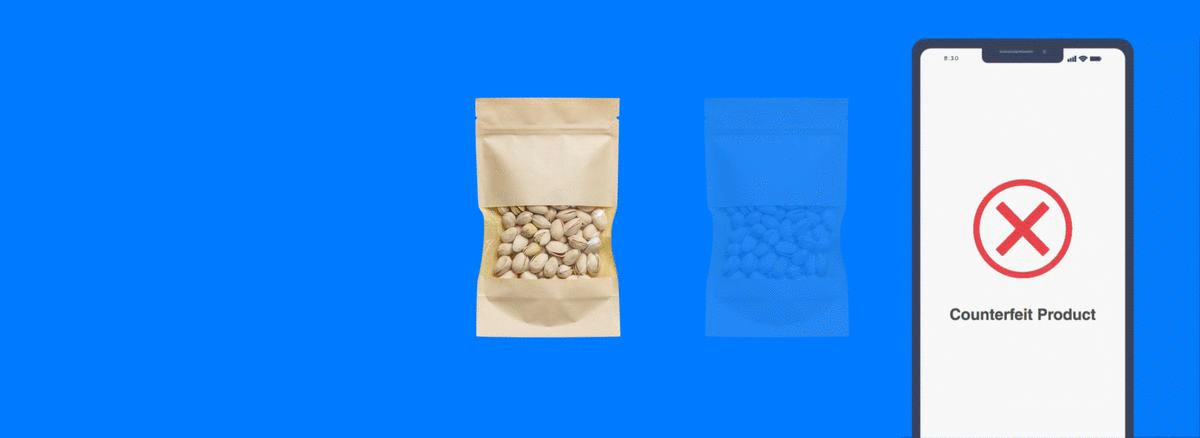
Food and Beverages
The Food and Beverages industry, encompassing Fast Moving Consumer Goods (FMCG) faces significant challenges due to counterfeit, fraudulent and spurious products. From personal hygiene items to food and beverages, counterfeiting has far-reaching consequences for all stakeholders, resulting in revenue loss for the exchequer, brand image damage for manufacturers, and a decline in quality, trust, and well-being for consumers.
Why Counterfeit Thrives in the Food and Beverages Sector?
- Easy Access: Advanced technology and easy procurement create fertile ground for backyard factories copying original brands and products.
- Packaging Issues in FMCG: Traditional packaging options can be easily used by counterfeiters to repackage and refill with counterfeit products. This is especially true for packaged beverages. Counterfeit manufacturers can procure the original bottles from the recycling market and refill them with substandard beverages. Bottle caps are the easiest to imitate. Returnable glass bottles once were the catalyst for the counterfeit market in beverages.
- Leniency and Leeway: Weak regulatory checks and poor regulations empower the grey market of counterfeit food and beverages products.
- Accurate Duplications: Fake labels and packaging make it nearly impossible for consumers to identify and report a counterfeit products, posing a significant threat to safety and health.
- Lack of Awareness and Authentication Mechanism: Insufficient awareness and a lack of tamper-proof mechanisms to authenticate product originality embolden and fuel the counterfeit menace. Consumers do not have an easy option to trace back a product to the seller.
- Toying with the Unsuspecting Consumer: FMCG products are typically sold in busy hotspots, like weekly bazaars, outside railway stations, bus stands, etc, where consumers buy in a hurry and do not have the time to verify product’s authenticity.


Why we need to act NOW?
- Tax Evasions and Criminal Activities: Counterfeit products provide a safe haven for tax-evaders, fostering criminal activities and exploitation, compounding negative impacts on society.
- Loss in Revenue to the Manufacturer: An estimated 30% of FMCG products being counterfeit or spurious results in substantial revenue loss for manufacturers, impairing real-time information on product demand and sales.
- Consumer Loyalty and Brand Image: Spurious food and beverages jeopardize consumer health, tarnishing the company’s image. Instances like adulterated baby formula have subjected companies to public scrutiny and litigations.
ACVISS's offerings
At Acviss, we proactively safeguard your brand and consumers from counterfeit products, catering to FMCG items from personal hygiene to packaged food.
- With a backing of strong research and a multitiered loyalty management system, we offer customized solutions that will not only protect your brand but enhance its image through increased customer loyalty, engagement and awareness campaigns.
- With tamper evident and tamper proof technology that integrates into packaging, out track and trace service has been a trusted choice for many FMCGs.
- The Acviss label can then be verified at any point in the supply chain and also by the end consumer. Acviss’s app is one such medium. On verification, the user is not only able to identify the authenticity of the product, but can also get to know the product’s details and Origin.
